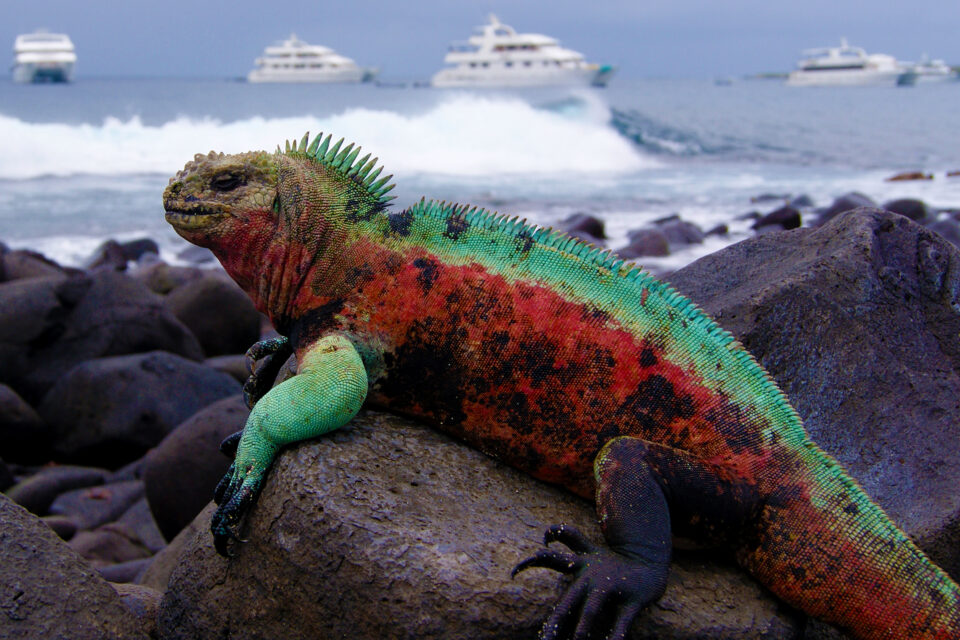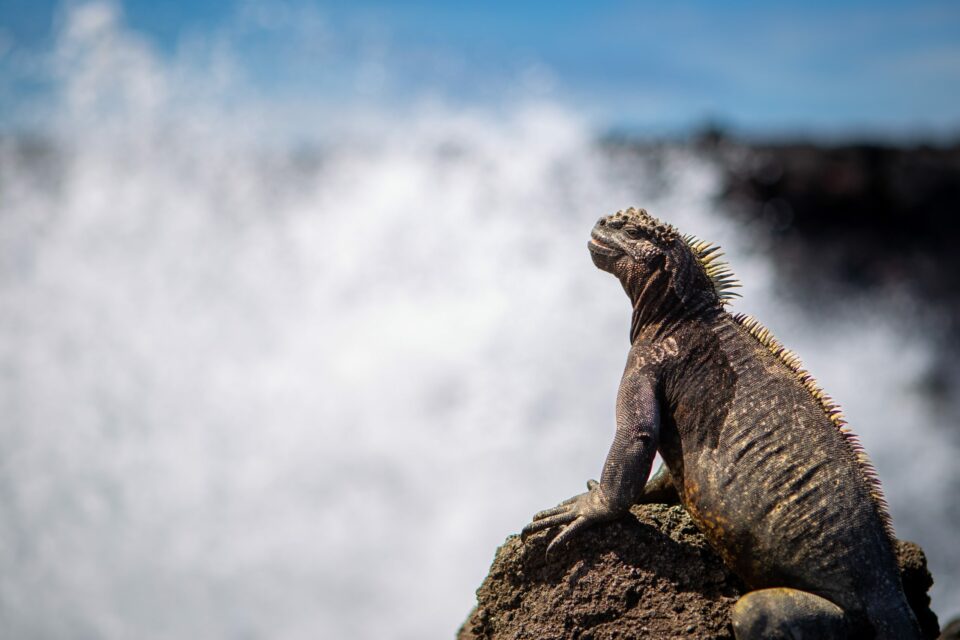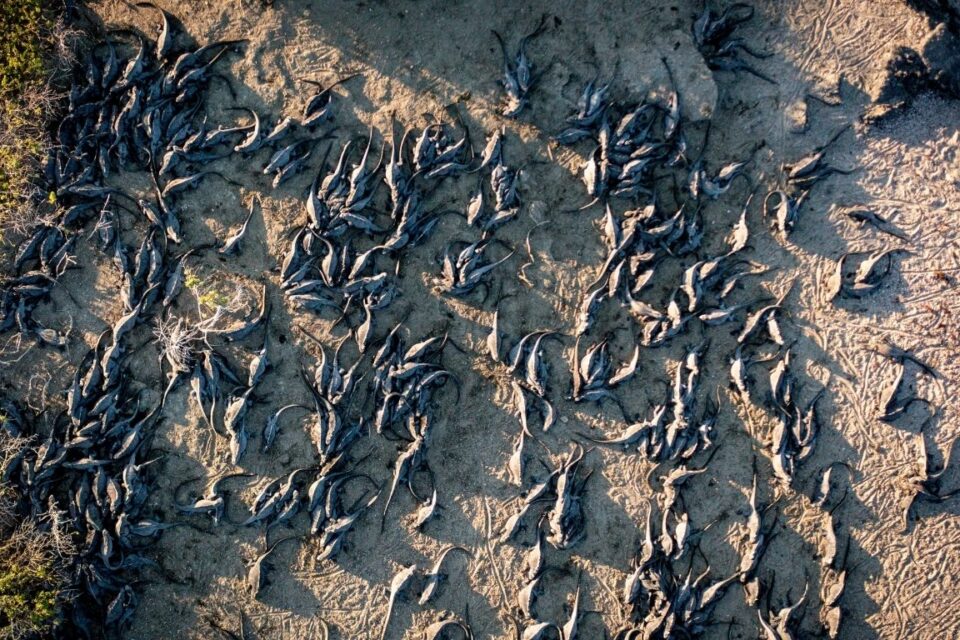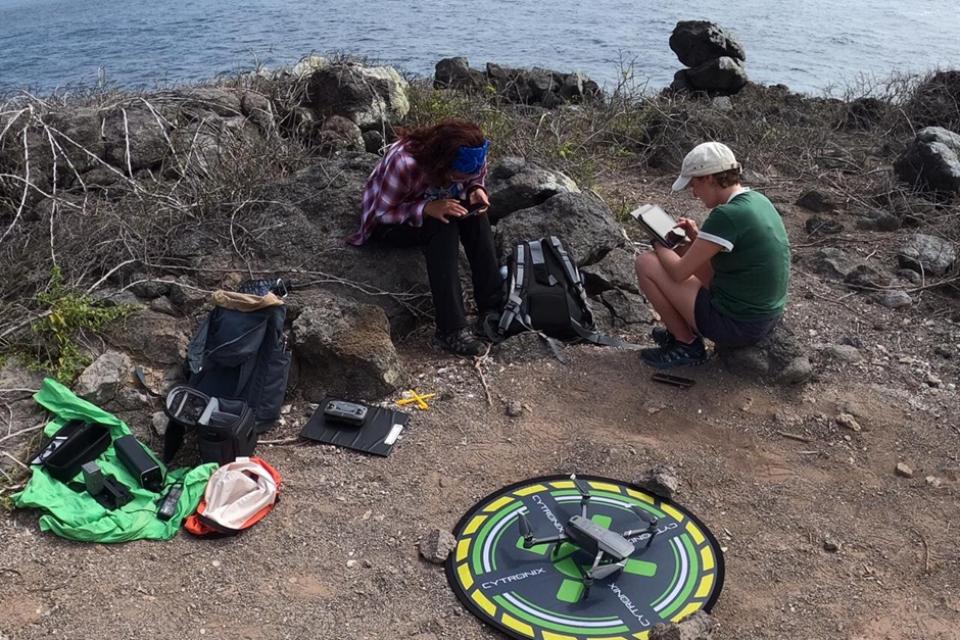

The Evolutionary History of the Galapagos Marine Iguana
A research paper published today looks into the extraordinary evolutionary history of the marine iguana.
Amy MacLeod is studying the Galapagos marine iguana (Amblyrhynchus cristatus) for her PhD with support from a grant from GCT. Her most recent paper entitled “Hybridization masks speciation in the evolutionary history of the Galápagos marine iguana” has been published today in Proceedings of the Royal Society of London B.

An adult male marine iguana (Amblyrhynchus cristatus) of the Loberia type, at the ‘La Loberia’ colony on San Cristóbal Island.
Hybridization (the merging of species) and speciation (the diversification of populations into species) are classically seen as opposing evolutionary processes. However, this study on Galapagos marine iguanas, the only seagoing lizard worldwide, offers novel insights into how these processes can act in concert. On San Cristóbal Island it was found that two resident populations of marine iguanas behave as distinct species from one another; they do not interbreed and they have morphological differences. This is the smallest island in which a speciation process in a highly mobile animal has been found. However these two populations also seem to breed freely with migrant iguanas from other Islands.
The research team believe that the combination of speciation between populations generates new adaptations and then hybridization between these populations absorbs those adaptations into a common genepool. This may enhance the evolutionary success of marine iguanas and help to explain their persistence on the archipelago (they are one of the oldest vertebrates of the Islands). However, the divergence between marine and land iguanas is far more recent than was previously thought, and it seems that they diverged around 4.5 million years ago which is about the same age as the oldest of the present Islands.

Following tracks to locate marine iguanas (Amblyrhynchus cristatus) at the ‘La Salinas’ colony, on San Cristóbal Island.
This is what Amy had to say about the importance of the research:
Marine iguanas clearly offer important insights into evolutionary processes, but environmental changes mean that their long-term survival could be in jeopardy. Genetic studies have shown us that marine iguana populations on different islands are distinct from one another. Work is underway into their taxonomic situation, and in the future, these populations may well be recognised as distinct subspecies or species. At the same time, we know that some of these populations are already extremely small and face significant threats from marine pollution and predation by introduced species. The situation is of great concern because marine iguanas occur on the Galápagos archipelago and nowhere else on earth – they have never been successfully kept outside of the islands. It is therefore vital that we monitor and manage these populations, because if they disappear from Galapagos, they are lost forever.”
Amy MacLeod is a PhD student at the Technische Universität Braunschweig in Germany.
Related articles


Iguanas from Above: Citizen science in action

Project Update: Iguanas From Above


